by Ruth Padilla DeBorst
Leaderless. Huddled in a small room, behind locked doors. Barely breathing fear. Helpless. Hopeless. Some perhaps brewing dark plans of revenge. Most, ready to flee, as broken victims of powers they can neither face nor understand. Suddenly, interrupting their aimless watch, “Peace be with you!” Jesus is among them. The disciples are overjoyed when they see the Lord. Shock. Amazement. Disbelief. Yet again, with loving insistence, wounded hands outstretched, Jesus repeats, “Peace be with you! Peace, not as the world gives it. My peace that passes understanding. As the Father has sent me –a humble servant who washes the feet of his followers, a prophet murdered for proclaiming justice, the Lord who gives himself away for your reconciliation— so I send you. But you do not live alone, as helpless, hopeless victims. I now breathe upon you my Spirit. No longer need you breathe fear. I give you the breath of life and love that banishes all fear. Freed from fear you can open your doors to give and forgive.” 1
Indeed, open their doors they did. This encounter converted disconcerted, overwhelmed victims and suicidal avengers alike into bold and outspoken witnesses of God’s reconciling love. And so began the story of the early, “peace church” (Kreider 2004:3), soon schooled in the challenges of breaking down walls, deconstructing stereotypes and including the ‘un-includable’ at their fellowship table. A striking instance is narrated in Acts 10 when, much to the initial consternation of the “central” church in Jerusalem, Peter, one of those who had huddled in fear after the crucifixion, not only responds to the summons of a Roman centurion, but also enters into the intimacy of this man’s world and spends days partaking of the same food under the same roof with someone who represents everything the Jewish people fear, hate, and reject. Cornelius is a soldier of the powerful imperial army that had executed Jesus and continued crushing Israel militarily and strangling it economically. To make matters worse, although Cornelius was said to fear God, he had never taken the steps required to become a Jewish proselyte. He and his household adhered to traditions, habits, diets and values abhorrent to religious Jews. In spite of all these barriers, however, Peter, guided by the Holy Spirit, obediently shares “the good news of peace through Jesus Christ,” and in so doing, he receives the good news of God’s reconciling love for all people afresh and is then ready to risk conveying its amazing breadth to the growing, and yet skeptical, Christian community. Eventually, over time, by engaging in the practice of God’s border-crossing mission, the church in Jerusalem did come to the humble recognition that God was active outside the confines of their ethnic and linguistic structures and that they had as much to receive from as they had to give, in partnership with people from other corners of the empire.2
Similar dynamics have played out in world Christianity throughout history. Power and prejudice, mission and money, fear and forgiveness, violence and reconciliation are entangled threads that resist unraveling. This paper considers the potential and conditions for partnership between Christians from North and South in God’s mission today. It focuses on US-Latin America relations, and proposes a path toward a reconciliation politics that resists the evils of domination and violent reactionary stances and hence can contribute to the broader body politic.
The Church as a key political actor
Built into all human interaction are issues of power. How Jesus’ early followers related to the Roman occupation forces, to the Jewish religious establishment, to foreigners, and even to one another as people of Jewish and Hellenist backgrounds are intrinsically political matters and constitute the subject matter of much of the New Testament Scriptures. Although Webster’s first definition declares politics to be “the art and science of government, concerned with guiding or influencing governmental policy, with winning or holding control over a government,”3 power relations, the use of force, the capacity to impose and to resist coercion, are realities woven through the entire fabric of human history, far beyond formal governments, and together they compose the “total complex relations between people living in society.”4 Elshtain’s definition portrays the broad scope of the concept: “Politics is about the ways in which we tend to, or neglect, the place in which we find ourselves” (1995:197). It is, in Václav Havel’s words “practically measured care for our fellow beings” (ibid., 196).
Followers of Jesus, the institutional and organic church, are active participants in the body politic. The question then, as Yoder frames it, “is not whether the Christian should be political or not; the question is rather to what sort of politics the Christian is called.” (Stone, 2007:15). At stake is not if the church is or not a political force in the world, but what sort of force it exerts in every particular place and time, in light of her understanding of the God she serves and of the mission which calls her into existence.
Wink powerfully reminds us that the Church, as all systems and powers, is created, fallen, and shall be redeemed. Placed by God in the world, she is called to incarnate God’s life-giving purposes for the entire creation and to call herself and all institutions to live out that divine vocation. Hers is a prophetic task in relation to all powers (Wink 1999). Focus on the church, then, is not born from nor entails indifference toward the broader body politic. To the contrary, attention to the church’s capacity to live out her vocation springs from and is faced for the sake of the world. In Brueggeman’s always powerful terms,
For ethics in the world and for the shape of humane and generative public policy, homework must be ecclesial. That is, good public policy requires the formation and nurture of sub-communities of courage and passion that are about the daily business of praise and obedience, that are devoted to the will of God, meditating on it day and night, and that actively await the full and soon coming of God’s governance. (2000:45).
In order to fulfill her prophetic vocation today the world Church has some disentangling to perform in her relation to the “powers-that-be” (Wink 1999).
Disentangling from imperial powers
Rome’s power cast a shadow over conquered people across the Empire. Demands to sustain the lifestyle of its citizens imposed heavy taxation, and military expansion sacrificed people and land to imperial purposes. Anger and rebellion were a natural response for which many, including subversive Jews in AD 70, paid dearly (Horsley 2003). In similar fashion today, Latin America experiences the weight of US interests. Through direct military intervention or covert support of dictatorships, through “free” trade agreements and commercial corridors, laws, land and labor are massaged, used and abused in the name of development (Grandin 2006). Not a realm of life is left untouched; politics, economics, natural and social ecology, all are affected by the current empire. In this context the phrase was coined: “Latin America, too close to the US and too far from God.” And as with first century Rome, responses have and continue to take many shapes, from peaceful demonstrations, to strikes, street revolts, and armed revolution.
Where, in these volatile contexts has the Christian church been? And how has she understood her mission in relation to power and force? Kreider characterizes the church of the first centuries as a “peace church,” a church that understood its very existence as an expression of God’s peace building in the world (2004). Concurrently, Bainton avers that, until Constantine, a pacifist perspective predominated in the church (1960). With the “Constantinian reversal” (Wogaman 1993:45) of A.D. 313, however, once the power and interests of the Empire and those of the church intertwined, it became increasingly difficult for the church to sort out its allegiances. This tension has haunted the Western church ever since (ibid.). When mission and reconciliation are disaggregated, they are both co-opted and rendered ineffective. Christian mission, divorced from its “twin” (Hartshorn in Kreider 2004:2) runs the risk of a-critically carrying the ‘good news’ of the power of the day, be it the Rome of the first Christendom, the Enlightened and reformed first nation-states, the “civilizing” British Empire, the cross-and-sword brandishing Conquistadores, or the current Crusaders against the “axis of evil.” The allegiance of power and mission rests on the blinding assumption that those centers own the pure Gospel, the inspired theology, the appropriate ecclesiology and the right ethical answers to the questions of Christian life in the world. Conversely, when the work of justice and peace-building are divorced from the church-in- mission, it runs the risk of carrying the ‘good news’ of human endeavour “detached from the good news of God’s grace and coming reign” (ibid.).
Often, throughout the history of world Christianity, when people on the receiving end of Western mission experienced it as yet another form of colonialism or foreign imposition, (Bosch 1991:302-313), they reacted strongly, even violently,5 with nationalist assertions of indigenization and independence from missionary input and Western control,6 and calls for moratorium on missions.7 Some of voices ring loud and clear:
We are come to the times when religious developments demand original songs and original tunes from the African Christian” Mojola Agbebi, 1902 (Koschorke 2007:218).
I am suspicious of ‘African experts’ who, without being invited, come from outside our black experience and propose theological as well as sociological programs showing how the past cultural patterns can shape and condition our lives today. It must be a black man who best knows how to live as a black man today […] Manas Buthelezi, bishop of central diocese of the united evangelical Lutheran church of south Africa, 1973 (Koschorke 2007:259).
We Christians can and must fight against tyranny. (…) The revolution is not only permissible but obligatory for those Christians who see it as the only effective and far- reaching way to make the love of all people a reality” Camilo Torres, Colombia, 1965 (Koschorke 2007:392).
We in the younger churches have to learn the discipline of freedom to accept and to refuse, to place resources at the service of mission rather than to have mission patterned by resources We cannot for the love of our brethren or for the love of God let anybody or anything stand in the way of our taking on our own shoulders our responsibility. If, in order to do that, we must say to you, our friends, “Stay home,” we will do so because before God we have this grave responsibility of our integrity. José Miguez Bonino, addressing a group in the US, 1974 (Anderson 1974).
The patchy history of Christian mission forces the question. Is there any hope today, in the midst of the pulls and tugs of current globalizing and counter-globalizing forces, of differing theological outlooks and intestine tensions, that the world Church can constitute a politics of reconciliation instead of one characterized by polarized confrontation?
One can never shake a hand with a clenched fist.
Hands extended in friendship or clenched fists?
The Apostle Paul celebrates the fact that, in spite of interpersonal tensions and differing mission priorities, Peter, James and John took the public step of extending to Paul and Barnabas the “right hand of fellowship,” and so freeing them all to concentrate on their particular part in God’s work –some among Jews, others among Gentiles— without compromising their unity in Christ (Gal 2.9). How can Christians from North and South partner in the construction of a reconciliation politics? I propose the following as concrete steps which Christians from North and South can take in order to live with outstretched hands rather than clenched fists.
- Approach one another with OPEN hands
Handshaking today is often reduced to a perfunctory social formality. But I am told that in its origins it fulfilled a practical purpose. When a man outstretched an open hand, he demonstrated that he held no weapon;, that he approached with no intent to harm. Handshakes have also come to symbolize the sealing of an agreement from which it would be dishonorable to back out. Open hands, then, represent transparency and commitment.
Hidden motives and broken promises breed suspicion, disappointment and mistrust. Sadly, the history of US relations with Latin America has been plagued with these evils, particularly since the Monroe Doctrine claimed “America for the Americans,” (as long as they weren’t too black, too brown, too poor, or lived South of the US border). Missionary indifference or direct connivance with oppressive military and economic measures have blended in with short term forays into the region and provoked reactionary responses of “Yankee, go home!’ along with occasionally irresponsible financial practices on the part of some Southern churches and NGOs. Christians in the South have also been tempted by power, abused its use and harmed their neighbors. The spiral of mistrust and incomprehension escalates.
The ‘homework’ necessary for Christians of North and South to encounter each other with open hands begins, I believe, by “confronting the past for the sake of ridding the present and future of its lingering effects” (Shriver 2005:5). Shriver denounces the crippling effects of the ‘sacramentalization of confession’ and the ‘privatization of forgiveness,’ which keep evils hidden from the public eye and individuals and institutions unaccountable for them. Evils, crimes perpetrated, and social wounds must be publicly remembered, named, faced, confessed and mourned. Space must be created for all voices and stories to be heard, and for collective repentance and forgiveness to take place. Symbols, sites, and art in ‘every day’ spaces con contribute to ‘intergenerational cooperation.’
Unavoidable questions for Christians of North and South are: In what ways has my country, my denomination, my church, my mission group, my family disregarded God’s image in my neighbor close at home or across the border? Have we, governed by pride, prejudice, or injustice been actively involved, complicit or silent when women, men or children have been dehumanized because of their race, ethnic background, class, gender, age, ideology, or religion? What are the concrete misdeeds of our people regarding which we should stand in the gap, in “identification repentance” (Dawson 2001:238)? “God is looking for volunteers who will open themselves to experience godly sorrow and confess the sins of the land.” (ibid.:237). God’s Spirit of truth and comfort is close at hand for those who chose to follow this path.
- Come before one another with EMPTY hands
Some good and much damage has been done throughout the history of missions by money. Hands have hoarded and dumped on others, bribed with and deprived others of resources. In his thorough and prophetic denunciation of the corrupting effect of money and reliance on it in missions, Jonathan Bonk declares:
Failure to counter wealth’s insidious effects upon its missionary endeavors will ensure the continued ebb of the Western churches as a Kingdom force… the richest churches in the world will continue to decline in spiritual fruitfulness despite its frenetic, high profile, technologically efficient activities. (…) In the end, all suffer: Christ, who so loved the world that he became poor; the world of the poor, so loved by Christ that he lived and died and lives for it; and the rich missionary, who so loves this world that he cannot give it up for the sake of Christ and for the gospel. (1991:44)
Reliance on money is dehumanizing both to haves and to have-nots. “If you dangle your millions before us, you will make beggars of us and demoralize us,” Gandhi warned American missionaries in 1936 (Bonk 1991:73).
Approaching one another empty-handed, in contrast, means recognizing our sheer humanity. No longer equipped with the multiple tools of privilege and power, material or symbolic, behind which we can masquerade our human foibles, we draw close to the other in the utter vulnerability of dependence on God and on one another.
To see God glorified in the face of Jesus Christ means we must unmask our economic privilege as Western Christians, so that we do not make the mistake of putting our own faces where Jesus Christ’s ought to be (Robert 2007:18)
When our hands are not encumbered by our many things, we are much more able to reach out to our neighbor. First steps Christians from North and South can take towards approaching one another with open hands are a radical reassessment of needs and wants, along with prayerful consideration of the grounds for personal and communal identity and security.
- Ensure that all hands break bread at the table
In a world in which a few people have the upper hand and others are expected to receive the hand their given, God’s people are called to open up space for all people to give and receive, breaking bread at the table of life. Even in peace-making efforts, all too often negotiations are brokered in the high echelons of formal political power, and little space is made for the common people, often the most vulnerable to the conflict being addressed. But, since “only a paper peace can be reached on paper,” (Botcharova 2001:281) efforts must be directed toward relational transformation among common people. In the implementation of what has come to be called Track Two Diplomacy, the focus is turned toward “unofficial interaction between members of adversarial groups or nations to develop strategies, influence public opinion, and organize human and material resources in ways that might help resolve their conflict (ibid.:284) in such a way that the affected people themselves —particularly the most vulnerable ones, like children, women and ethnic minorities— are able to name their pain, own the peace initiatives, and invest their creative capacity for the sake of lasting change. When people have suffered aggression or injury, suppression of grief only leads to anger, desire for revenge and acts of ‘justified’ aggression (ibid.:298). Only when people are given space to mourn can the cycle of violence be broken, because the expression of grief contributes to the acceptance of loss and the re- humanization of the enemy, which, in turn opens the door for forgiveness, admission of guilt and joint negotiation for the establishment of justice (ibid.).
Regarding the mission of the church, in light not only of the “meteoric rise of Christianity in the South and the corresponding decline in the North” (Johnson and Kim 2007:25), but fundamentally out of a recognition of there are no ‘first’ and ‘second’ class citizens in God’s Kingdom, a double task lies ahead. On the one hand, Christians in the North and the South must recognize and humbly celebrate that Christian mission efforts have provided tools, like education, and contributed significantly to the preservation of indigenous languages and cultures, particularly through Scripture translation. On the other, it is high time more recognition were given to theological reflection and missiological perspectives birthed in the global South, and to the insights gained in context of more prevalent poverty and deprivation. With this acknowledgement, the Northern church’s agenda is likely to be further stretched to include not only cultural wars and individual morality but also global economic justice and ecological responsibility. Understandably, for a church that for over a century has seen itself as the “sender”, the source of teaching and giving, recognizing a need to change and learn does not come easily. What is at stake today, however, is not merely a recasting of missions for a new era but essentially the renewal of the church itself.
Questions like the following need to be addressed: How can Northern theological institutions, mission agencies and local churches open space for people from outside their traditional establishments. To what extent are doors open to majority world Christians on boards, in leadership positions, in strategic planning for mission activity in their own regions of the world? And how willing are local North American churches to include among their pastors and leaders persons originally from the Third World? Might they support multi-national, multi-ethnic ministry teams in major cities as part of their church development efforts? What steps must be taken so that ‘Third world’ theological and ethical articulations are explored with as much respect as those formulated in this country or inherited from Europe? How many publishing houses, for example, are ready to invest in translating and marketing books authored outside of the US? How truly open are hearts and homes, congregations and schools to the hundreds of immigrants driven from their homes by violence and deprivation? In sum, what ethnocentric or nationalistic prides and imperial pretensions need to be put at the foot of cross to allow Christ –in the shape of Southern sisters and brothers –to make his home among us?
- Share in the wounded hands of the Servant King
To a culture set on guaranteeing individual rights, assuring personal security and alleviating –or at least sequestering (Giddens 1991)— suffering, the message of the cross appears like anything but Good News. But the outstretched hands of the Lord who announced peace to his disciples and called them out of hiding into his mission, were marked by the deep wounds of the crucifixion nails. Recognizing that in Christ, God “does not transcend the predicament of human history by avoiding its perils but, rather, by taking upon himself the infirmities and corruption of deformed humanity” (Costas 1982:11) has clear and shocking missiological implications. Christians discover Christ’s real identity not by avoiding suffering but by engaging prophetically in all the pain and confusion of our historical situations and particularly in the experience of the oppressed (ibid.).
More than an institution or even a denomination, Christ’s church is called to be the living, breathing, loving community of disciples of the Servant King, empowered, built up and gifted by the Holy Spirit, a new and unlikely community of equals, with interdependent relationships of mutual respect regardless of social stance, ethno-cultural background and gender. Living as an alternative body politics that challenges humanly constructed walls, borders, prejudices and exclusions does entail risk. Peace is not popular in a society blinded by the “myth of redemptive violence” (Wink). But for followers of the God of peace, there is no other way.
- Raise hands in communal praise and supplication
Finally, a reconciliation politics is grounded on the confession that women and men are not “self- positing, self-possessed, and self-sufficient” individuals but rather “doxological subjects,” who are continuously receiving their very selves and others as gifts (Stone 2007:140). This recognition is paired with humble admission and joyful celebration that reconciled relations are possible, not thanks to human ingenuity, political strategy or technical savvy, but only thanks to the power of God manifested in resurrection (Kreider 2004:10). Our societies need to know that life and joy are possible on this side of the grave (Costas 1982:183). Death –and its many crippling, dehumanizing expressions— does not have the last word. God’s victory over death flings wide open the gates of communal creativity and imagination that had been trapped by fear and squelched by violence. And it opens the way for people to join hands in ‘reconciliation prayer movement(s)’ (Dawson 2001:237) that engage in intercession and action (Orare et laborare) for reconciliation.
Joining hands for reconciliation
The disciples in the upper room, people through the ages, and personal experience attest to the dark reality that fear naturally engenders distance and leads to exclusion and violence (Volf 1996). In contrast, God’s Spirit of love sows trust, and engages men and women in the active practice of God’s reconciling mission from everywhere to everywhere (Escobar 2003). Peace is not some static condition but rather the dynamic experience of just relations that are co- constructed by God’s Spirit and God’s people in the practice of God’s mission in God’s world.
Public confession and forgiveness around a common table are the first steps. As Stone affirms,
The church is a mode of participation in Christ and a fellowship that, though made up of sinners like the rest of the world, has discovered the capacity to publicly resist and redeem the powers through confession and forgiveness of sin around a common table (Stone 2007:113).
Christian communities in the North and the South can break cycles of fear, suspicion, domination and rejection in the Church and far beyond. They join in a reconciliation politics when, by the power of the Spirit, they approach one another with open, empty, wounded hands, ensuring that all have a place at the table, and praying and praising God, whose breath of love grants new life to all people.
Bibliography cited:
Anderson, Gerald. “A Moratorium on Missionaries?” in Christian Century, January 16, 1974.
Bainton, Roland H., Christian Attitudes Toward War and Peace. New York: Abingdon Press, 1960.
Bevans, Stephen and Roger Schroeder. Constants in Context: A Theology of Mission for Today
New York: Orbis Books, 2004.
Bonk, Jon. Missions and Money: Affluence as a Western Missionary Problem American Society of Missiology Series. Maryknoll, N.Y.: Orbis Books, 1991.
Bosch, David Jacobus. Transforming Mission: Paradigm Shifts in Theology of Mission American Society of Missiology Series; No. 16. Maryknoll, N.Y.: Orbis Books, 1991.
Botcharova, Olga. “Implementation of Track Two Diplomacy: Developing a Model of Forgiveness ” In Forgiveness and Reconciliation: Religion, Public Polity and Conflict Transformation, ed. Raymond and Rodney Petersen Helmick, 279-304. Philadelphia and London: Templeton Foundation Press, 2001.
Brueggemann, Walter. “The Vision for a New Church and a New Century: Holiness Become Generosity.” Union Seminary Quarterly Review 54: 1-2 (2000): 45—64.
Costas, Orlando E. Christ Outside the Gate: Mission Beyond Christendom. Maryknoll, N.Y.: Orbis Books, 1982.
Dawson, John. “Hatred’s End.” In Forgiveness and Reconciliation: Religion, Public Polity and Conflict Transformation, ed. Raymond and Rodney Petersen Helmick. Philadelphia and London: Templeton Foundation Press, 2001.
Elshtain, Jean Bethke. “Really Existing Communities.” Review of International Studies 25 (1999): 141-146.
. “Stories and Political Life.” in Political Science and Politics, Vol. 28, No. 2, (Jun., 1995), pp. 196-197. Published by: American Political Science Association Stable URL: http://www.jstor.org/stable/420344. Accessed: 05/05/2008 20:59.
Escobar, Samuel. The New Global Mission : The Gospel from Everywhere to Everyone Christian Doctrine in Global Perspective. Downers Grove, Ill.: InterVarsity Press, 2003.
Giddens, Anthony. Modernity and Self-Identity : Self and Society in the Late Modern Age.
Stanford, Calif.: Stanford University Press, 1991.
Grandin, Greg. Empire’s Workshop : Latin America, the United States, and the Rise of the New Imperialism. 1st ed. The American Empire Project. New York: Metropolitan Books, 2006.
Horsley, Richard A. Jesus and Empire: The Kingdom of God and the New World Disorder.
Minneapolis: Fortress Press, 2003.
Jeyaraj, Daniel. “Introduction” in Antioch Agenda : Essays on the Restorative Church in Honor of Orlando E. Costas, ed. Jeyaraj, Daniel, Robert W. Pazmiño, Rodney Lawrence Petersen,
I.S.P.C.K. (Organization), Andover Newton Theological School, and Boston Theological Institute. New Delhi: Indian Society for the Promotion of Christian Knowledge for Andover Newton Theological School and the Boston Theological Institute, 2007.
Johnson, Todd and Sandra Kim. “The Changing Face of Global Christianity.” in Antioch Agenda: Essays on the Restorative Church in Honor of Orlando E. Costas, ed. Daniel Jeyaraj, Pazmiño, Robert W., Petersen, Rodney Lawrence, I.S.P.C.K. (Organization), Andover Newton Theological School, Boston Theological Institute. New Delhi: Indian Society for the Promotion of Christian Knowledge for Andover Newton Theological School and the Boston Theological Institute, 2007.
Koschorke, Klaus, Frieder Ludwig and Mariano Delgado, eds. Grand Rapids, MI / Cambridge, UK: Eerdmans Publishing Co. 2007.
Kreider, Alan. Missio Dei. Exploring God’s Work in the World. Peace Church, Mission Church: Friends or Foes? Elkhart, IN: Mennonite Mission Network, 2004.
Lederach, John Paul. Building Peace : Sustainable Reconciliation in Divided Societies.
Washington, D.C.: United States Institute of Peace Press, 1997.
Robert, Dana. “The Great Commission in the Ages of Globalization.” In Antioch Agenda : Essays on the Restorative Church in Honor of Orlando E. Costas, ed. Daniel Jeyaraj, Pazmiño, Robert W., Petersen, Rodney Lawrence, I.S.P.C.K. (Organization), Andover Newton Theological School, Boston Theological Institute. New Delhi: Indian Society for the Promotion of Christian Knowledge for Andover Newton Theological School and the Boston Theological Institute, 2007.
Shriver, Donald W. Honest Patriots : Loving a Country Enough to Remember Its Misdeeds. New York: Oxford University Press, 2005.
Stone, Bryan. Evangelism after Christendom: The Theology and Practice of Christian Witness.
Grand Rapids, MI: Brazos Press, 2007.
Volf, Miroslav. Exclusion and Embrace : A Theological Exploration of Identity, Otherness, and Reconciliation. Nashville: Abingdon Press, 1996.
Wink, Walter. The Powers That Be : Theology for a New Millennium. 1st Galilee trade pbk. ed.
New York: Doubleday, 1999.
Wogaman, J. Philip. Christian Ethics : A Historical Introduction. 1st ed. Louisville, Ky.: Westminster/John Knox Press, 1993.
- Drawn from John 20.21-23; 14.27; Phil 4.7; 1 John 4.8.
- See Jeyaraj in Antioch Agenda.
- Merriam-Webster Online Dictionary copyright © 2005 by Merriam-Webster, Incorporated (retrieved May 8, 2008 from http://www.merriam-webster.com/dictionary/politics).
- Ibid., third definition.
- Examples are the 1851 anti-Christian Edict against Christians in Vietnam (Sourcebook: 75), the 1900 Boxer Rebellion in China, during which Chinese Christians and Western missionaries were martyred (Bevans and Shroeder 2004:216).; and the 1904 Rebellion in Namibia (ibid.)
- See sourcebook, regarding Asia: 90-92, 101-106; Africa: 216-220; Latin America 390-418.
- John Gatu in 1971(Bevans and Shroeder 2004:262); the CWME meeting in Bangkok in 1973.
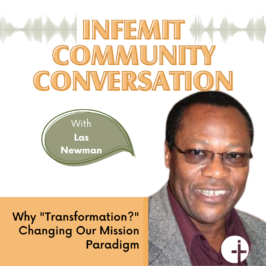
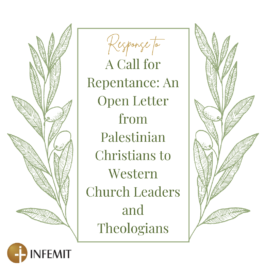
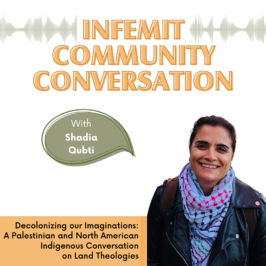
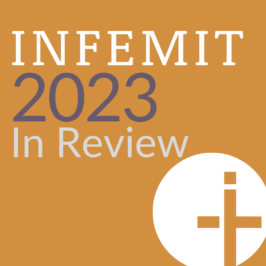
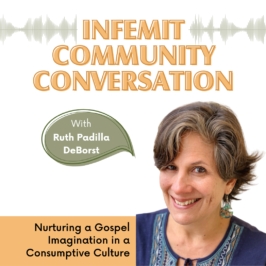

Leave a Reply